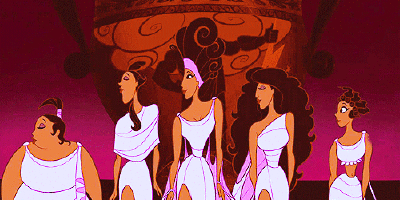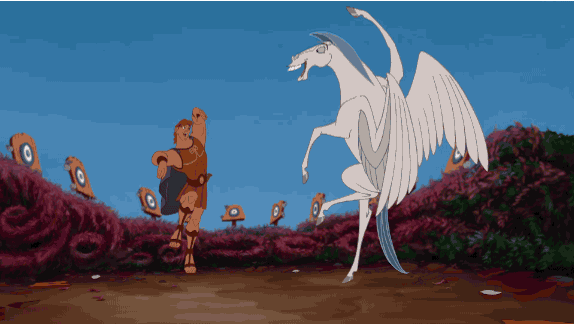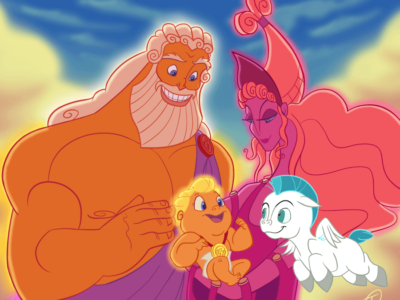The phrase, “I’m a Classics major” usually translates as easy as a Greek or Latin scroll. Holy Homer, what the heck is a Classics major? Are students draped in togas, debating the formation of astronomy and archeology? Is it a desert landscape of a classroom where students dig up ancient urns? Classics majors spend their days in the past— uncovering the creation of ancient arts, engineering, athletics and more— only to bring their skills of logic and research to the present and beyond. With their strong critical thinking skills, a Classics grad may very well be the judge at your court hearing, the museum coordinator at the MET or the doctor attending to you in triage.
What You’ll Be Doing

Bear down for a rigorous study of Greek and Latin, as a tongue in both languages will have you comprehending ancient texts like a regular court member. How awesome is it that you’re uncovering ancient humanity? And what’s more, you’ll get to pick an angle of study, anything from gender studies to religion to war. A Classics major gets to hang out with countless Greek and Roman texts—from Seneca to Plautus and from comedy to philosophy—which will push you to reflect on the logic behind our modern societies. You should get pumped to pack your bags, too, as many Classics programs embark on archeological digs and study abroad trips to ancient cities, giving you the opportunity to gain credits in the field of the amazing ancient past.
Upsides

1. “It’s a very broad discipline. It includes language, it includes history, literature, art, architecture and philosophy and it’s certainly at the basis of a lot of humanities.” -Douglas Machle, Assistant to the Chair, UW Undergraduate Adviser, Graduate Program Assistant
2. “Classics gives us depth and perspective that most people lack—and that serves our students well. As a highly rigorous field, we also engage in excellent ‘brain training’ through our languages, and our deep focus on critical thinking, logic and writing sets our graduates in a great position for success in or out of academia.” –Sarah Culpepper Stroup, UW Associate Professor and BA in Philosophy and Classics, Magna Cum Laude 1992
3. “Classics—by the nature of its literature, history and culture—forces us to think about almost every imaginable issue under the sun. I don’t think anyone would argue that learning how to think for yourself is an incredibly useful thing to do.” –Alain Gowing, UW Professor of Classics
Downsides

1. “Most people have no idea that this field exists—much less what we do and how cool it is. To be honest, no one is going to get rich from it… but that means that the people who stick with it do so out of pure enthusiasm and love.” –Culpepper Stroup
2. “Sometimes studying a dead language (or two) can be hard to explain to your friends and family. But when they see how much you enjoy it, they will understand why you do it.”-Catherine Connors, Chair and professor
3. “If there’s a downside, it is not for you as an individual, it is for the possible perception of others about you.” –Gowing
Career Opportunities

1. Teaching
Can’t wait to get back in the classroom? A Classics major offers a delightful dilemma of options when it comes to teaching. The assortment of subjects that you master —Greek, Latin, history of ancient Greece and Rome, literature and the arts, specialty topics of Greek and Roman life— are incredibly diverse and offer an immense amount of depth. The opportunity to keep expressing your love of classics through more teaching and learning isn’t a bad thing at all.
2. Archeology
It’s a pretty sweet reality that you can make a career out of playing in the dirt. A Classics major comes with the territory to be an anthropological archeologist, meaning that you get to travel from Grecian islands to Turkey to uncover past civilizations. Use your knowledge of ancient life to analyze how these hidden cities lived their lives and what their customs tell us about the creation of the modern world.
3. Anthropologist/Writer/Historian
Dig a little deeper into your passions and become a researcher in the field. As an anthropologist, you can research why ancient Greeks and Romans lived the way that they did, and how their traditions and discoveries have carried onto present day. Voice your questions and dig up the answers. After exhilarating research, archive your findings as a historian for a museum or try your hand at writing down your findings for a career.
4. Law
Curve ball: a Classics graduate is a great candidate to go on to law school. The background in critical thinking and philosophy is the perfect preparation to join the legal team. Before applying to law school, consider how ancient Greek and Roman ways of thinking have impacted your view of the law and justice. Specific angles of ancient philosophy are sure to play a part in your formation as the next great defense attorney.
5. Museum Coordinator
You’re at the heart of deciding what goes where, what goes on display at all and most importantly, what the heck is that little rock over there with writing on it? You’ll basically be an archaeologist without all the dirt. Some of us like to live the glamorous life, and you can get the best of both worlds.



















